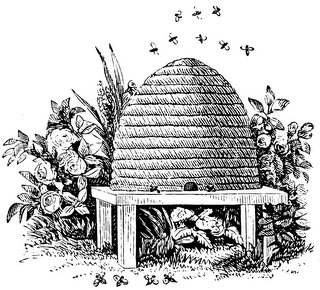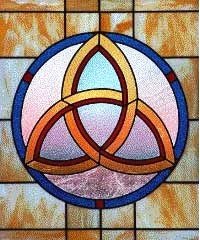 Text: Mark 4:26-34
Text: Mark 4:26-34 Jesus often spoke in parables and these seemed to have been designed to puzzle those who only had a superficial interest in his teaching so that they would go away and say. “Well, I don’t know what he’s talking about; he sounds crazy to me.” At the same time, those who were leaning in to discover more about the kingdom, those whose hearts were open to the wisdom that comes from God would think on these little gems until they yielded their secrets. They are similar in some respects to the Zen Buddhist practice of using a riddle known as a “koan” to try to get the disciple’s mind to break through to enlightenment. They are questions or statements that yield a truth that may not be available to the rational mind but accessible to intuition. The most famous one is probably , “Two hands clap and there is a sound; what is the sound of one hand?” Jesus’ parables are at the same time more straightforward as well as more profound than these.
At this stage in his public ministry Jesus was using the method of parables exclusively, according to verses 33 and 34. “With many similar parables Jesus spoke the word to them, as much as they could understand. He did not say anything to them without using a parable…”
However, when he was alone with his disciples he explained things to them more fully. They still didn’t always understand, but they had the privilege of a greater degree of access to the master in private than did the crowds. Parables were widely used among the rabbis of Jesus’ day. The rabbis with the best stories tended to have the largest followings. A parable functioned a little bit like a good joke. You went home and retold it to your family and friends and they retold it to others and pretty soon what had been spoken in secret was being shouted from the rooftops.
 The use of parables in preaching and teaching is not so much in style these days. We seem to prefer straightforward no-nonsense, fact-based teaching. I am reminded of this now and then when in a classroom I read a poem or play a song or show a film clip to illustrate some theological point and the students will say, “But what does it mean?” or “Is this going to be in the test?” If you watch televangelists (who, remember, have huge followings) you will not find them using parables. They are straight-shootin,’ black and white-thinking’, no-nonsense tell it like it is preachers. Can you imagine Benny Hinn or Jesse Duplantis standing before a television audience and saying something like, “The kingdom of God is like a man who stumbled upon a beehive; the bees had a bad temper, but the honey sure was sweet.” I don’t think so.
The use of parables in preaching and teaching is not so much in style these days. We seem to prefer straightforward no-nonsense, fact-based teaching. I am reminded of this now and then when in a classroom I read a poem or play a song or show a film clip to illustrate some theological point and the students will say, “But what does it mean?” or “Is this going to be in the test?” If you watch televangelists (who, remember, have huge followings) you will not find them using parables. They are straight-shootin,’ black and white-thinking’, no-nonsense tell it like it is preachers. Can you imagine Benny Hinn or Jesse Duplantis standing before a television audience and saying something like, “The kingdom of God is like a man who stumbled upon a beehive; the bees had a bad temper, but the honey sure was sweet.” I don’t think so.Ken Collins reminds us that the problem with “tellin’ it like it is” preaching is that “like it is” eventually becomes “like it was.” (Ken Collins. “Why Parables and Not Straight Talk?“ www.faithandvalues.com) The fashionable sins of the day denounced in one generation can sound awfully quaint if they are still being denounced a generation later. You realise this when you read old sermons from a previous era which denounce certain fashions of the day. Parables on the other hand are timeless. They never date because they deal with timeless truths of the kingdom. Social mores come and go but the things spoken about in parables, because they speak of the matters of the kingdom, have abiding relevance. The two in today‘s Gospel reading are both about seeds. So today we are in God’s gardening show - In the Seed Shop With Jesus.
 The Parable of the Growing Seeds seems to teach that the kingdom of God grows hiddenly and mysteriously and is not subject to human control or dependent upon human cleverness. …“This is what the kingdom of God is like. A man scatters seed on the ground. 27 Night and day, whether he sleeps or gets up, the seed sprouts and grows, though he does not know how. 28 All by itself the soil produces grain—first the stalk, then the head, then the full kernel in the head. 29 As soon as the grain is ripe, he puts the sickle to it, because the harvest has come.” Wow, sounds so easy doesn’t it? All you do is scatter the seed on the ground and all day and all night the process is at work without your intervention at all. Whether you’re awake or whether you’re asleep, the seed is growing. All you have to do is wait until the harvest, get out your sickle and reap the benefits of all the mystery of that unstoppable growth. Now this doesn’t mean that farming isn’t hard work - a parable is meant to convey just one simple truth, it’s not an extended metaphor in which every detail of the story parallels with fact. The point here is that the farmer doesn’t know how the seed grows. He doesn’t cause the seed to grow. He can only arrange things so that he benefits from that growth and is there to harvest the crop when the time comes. So it is with the reign of God. It is God’s kingdom not ours. Whether we are awake or whether we are asleep God is at work in the world, his rule is sprouting and growing all by itself, it is bringing forth grain, first the stalk, then the head, then the full kernel in the head. Finally the harvest will come.
The Parable of the Growing Seeds seems to teach that the kingdom of God grows hiddenly and mysteriously and is not subject to human control or dependent upon human cleverness. …“This is what the kingdom of God is like. A man scatters seed on the ground. 27 Night and day, whether he sleeps or gets up, the seed sprouts and grows, though he does not know how. 28 All by itself the soil produces grain—first the stalk, then the head, then the full kernel in the head. 29 As soon as the grain is ripe, he puts the sickle to it, because the harvest has come.” Wow, sounds so easy doesn’t it? All you do is scatter the seed on the ground and all day and all night the process is at work without your intervention at all. Whether you’re awake or whether you’re asleep, the seed is growing. All you have to do is wait until the harvest, get out your sickle and reap the benefits of all the mystery of that unstoppable growth. Now this doesn’t mean that farming isn’t hard work - a parable is meant to convey just one simple truth, it’s not an extended metaphor in which every detail of the story parallels with fact. The point here is that the farmer doesn’t know how the seed grows. He doesn’t cause the seed to grow. He can only arrange things so that he benefits from that growth and is there to harvest the crop when the time comes. So it is with the reign of God. It is God’s kingdom not ours. Whether we are awake or whether we are asleep God is at work in the world, his rule is sprouting and growing all by itself, it is bringing forth grain, first the stalk, then the head, then the full kernel in the head. Finally the harvest will come.We can see the signs of this growth if we look carefully enough, but often we are too busy to slow down enough to discern it. I read recently about a man who was travelling by public transport in a busy city with a monk. They needed to get across town in a complicated series of connections and the subway attendant told them that if they bought a particular ticket and went by a particular route they could save themselves twenty minutes travel time. They agreed, bought the ticket, and the monk promptly sat down calmly on a bench. His friend said, “What are you doing?” The monk replied, “I though we’d just enjoy the twenty minutes.” We are so obsessed with having to get things done and make things happen that we don’t get the chance to sit down and enjoy what God has given us with the assurance that whether we wake or sleep, whether we work or play, the seed of the kingdom is growing.
 A mother once set aside a little plot in the veggie garden for her daughter to grown carrots from small seedlings. She told her that if she would water them daily, the roots would grow deeper and the green leaves on top would get taller and soon they would be able to eat the delicious full grown carrots. Time went on and the carrots seemed to wither, and die off. The mother was puzzled about this and said to the daughter, “Are you sure you’re watering them every day?” “Yes,” her daughter replied, “and I’ve pulled them out of the ground each day to see if the roots are getting longer, but they just never seem to!” Aren’t we like that little girl? We can’t trust God to grow his kingdom, so we interfere, but our interventions only make matters worse. Remember the Lord’s Prayer does not say, “Lord help us build your kingdom.” It says, “Your kingdom come…” Martin Luther said, “The kingdom of God comes of itself.” Jesus said, “The kingdom of God is among you.” To speak of building the kingdom is almost blasphemous when you think about it. Who are we to think that God cannot build his own kingdom?
A mother once set aside a little plot in the veggie garden for her daughter to grown carrots from small seedlings. She told her that if she would water them daily, the roots would grow deeper and the green leaves on top would get taller and soon they would be able to eat the delicious full grown carrots. Time went on and the carrots seemed to wither, and die off. The mother was puzzled about this and said to the daughter, “Are you sure you’re watering them every day?” “Yes,” her daughter replied, “and I’ve pulled them out of the ground each day to see if the roots are getting longer, but they just never seem to!” Aren’t we like that little girl? We can’t trust God to grow his kingdom, so we interfere, but our interventions only make matters worse. Remember the Lord’s Prayer does not say, “Lord help us build your kingdom.” It says, “Your kingdom come…” Martin Luther said, “The kingdom of God comes of itself.” Jesus said, “The kingdom of God is among you.” To speak of building the kingdom is almost blasphemous when you think about it. Who are we to think that God cannot build his own kingdom? The Parable of the Mustard Seed is similar to the parable of the growing seeds but makes an additional point about the kingdom. It reminds us that from the smallest almost invisible influences the kingdom of God can have a profound and extensive impact. The kingdom of God is “like a mustard seed, which is the smallest seed you plant in the ground. Yet when planted, it grows and becomes the largest of all garden plants, with such big branches that the birds of the air can perch in its shade.” When I worked for the Lane Cove Municipal Council in Sydney 25 years ago, I planted a couple of kilometres of gum trees in the harbour side suburb of Longueville. When I drive down that road now I am amazed at what those little potted trees have grown into! From little things big things grow. Look at David in today's Old Testament reading...Just a kid, the smallest and youngest of Jesse’s family, but he was the one God chose to defeat Goliath and succeed Saul to the throne of Israel. Secretly, quietly, and in obscurity God was growing that particular strippling until he was ready to be revealed to the world as David the Giant Killer! Or look at Paul in our Epistle reading - a small man, with a physical disability, not strong as a public speaker, with a murderous past, who faced constant undermining by his opponents in and out of the church, but God worked hidden and secretly in that man, until he brought forth a great harvest in the lives of those he served. In the end he knew that he was “in Christ,“ (his favourite term to describe Christians) and that if “if anyone is in Christ, there is a new creation: everything old has passed away; see, everything has become new!” (2 Corinthians 5:17) Many a bird had perched in the branches of the plant produced by Paul’s apostolic work!
These truths of the kingdom are open to any person at all. They are public knowledge, and those who have ears to hear will grasp them, whereas those with no interest in such matters will continue to scoff at or disregard them. God operates a freedom of information act so that his wisdom is accessible to anyone who wants to hear it. You can read the truths of the kingdom of God in a Gideon’s Bible, see them in a movie, read them in a novel, or hear them in conversation. You don’t have to be a Christian to understand, “First remove the log from your own eye, then you will be able to see to remove the speck from your neighbour’s eye.” You don’t have to be a Christian to understand that the musical Les Miserables is a parable about the redemptive power of forgiveness, or that the film Babette’s Feast is an extended parable of grace. The Christian symbolism of C. S. Lewis;’ The Lion the Witch and the Wardrobe was not lost upon film reviewers (some of whom hated it and saw it as something one had to get past). The Christian mythology behind Tolkien’s The Lord of the Rings is more subtle but it is there for those who have ears to hear and eyes to see. However, believers are privy to a second level of information sharing. Verse 34 tells us that when Jesus “was alone with his own disciples, he explained everything.” To be a follower of Jesus Christ is not so much to have exclusive access to the truths of the kingdom - this is available to all. Rather, it is to be in a close relationship to the one who is himself the embodiment of that kingdom, and so be able to gain more extensive insights into the meaning that lies behind all things - into what Lewis called “the deep magic.“
We need to keep our hearts curious and inquisitive about the truths of the kingdom not in an anxious way but in a trusting way, knowing that God is in control. Some people, look for truth in an anxious way. They are fearful that perhaps they may have missed something or that there is some vital truth that God has, which, if they fail to grasp may mean spiritual loss to them. So there is all too much anxiety in Christian circles. In the Old Testament the presence of God was something that would fall upon the people under certain conditions such as when everything was done properly in the tabernacle and temple worship and the glory of God would descend like a cloud upon the congregation. However a New Testament model of worship is different because God is already present as we gather. In fact the Greek word translated “church” is ekklesia - “the called out ones.” We have only assembled because God has drawn us to himself. We have no need to “call down” the presence of God but rather to recognise and announce it. Yet many Christians are striving to find some key to experiencing "anointed" worship or the "shekinah glory," or some such thing and strive to bring it about. These Christinas often look a little wild-eyed which is something you develop a bit of a radar for after awhile. But why would we want anything like that? What would be the point? We have Jesus. The New Testament teaches us that in him we see "the glory of the only-begotten from the Father, full of truth and grace.” Many believers have been taught to expect such an experience and have perhaps been trying to obtain it unsuccessfully and may be quite put off by my suggestion that such a search is futile and ill-advised. There are many believers like that, seeking the truths of the kingdom of God anxiously rather than in a trusting way. The Parables of the Growing Seed and the Mustard Seed can be liberatign for such anxious follwers of Christ, freeing them from the unnecessary burden of thinking they have to generate an experience. I have known many people who have driven themselves to depression and worse by worrying themselves either over doctrine or dogma on the one hand, or finding the latest spiritual ecstasy on the other. Parables help us instead to take a child-like and playful approach to discovering the truths of the kingdom. The kingdom of God has come. It began in small and unobtrusive way but it is growing, inexorably, certainly, and in God’s good time, it will become a tree so huge that many birds will rest in its branches.
Let me leave you with a parable of my own. See if you like it. “The kingdom of God is like a woman who put a cake in the oven. She watched Oprah and when she came back to the kitchen it had risen, hot, and ready to eat. And the whole family ate and was satisfied.”










